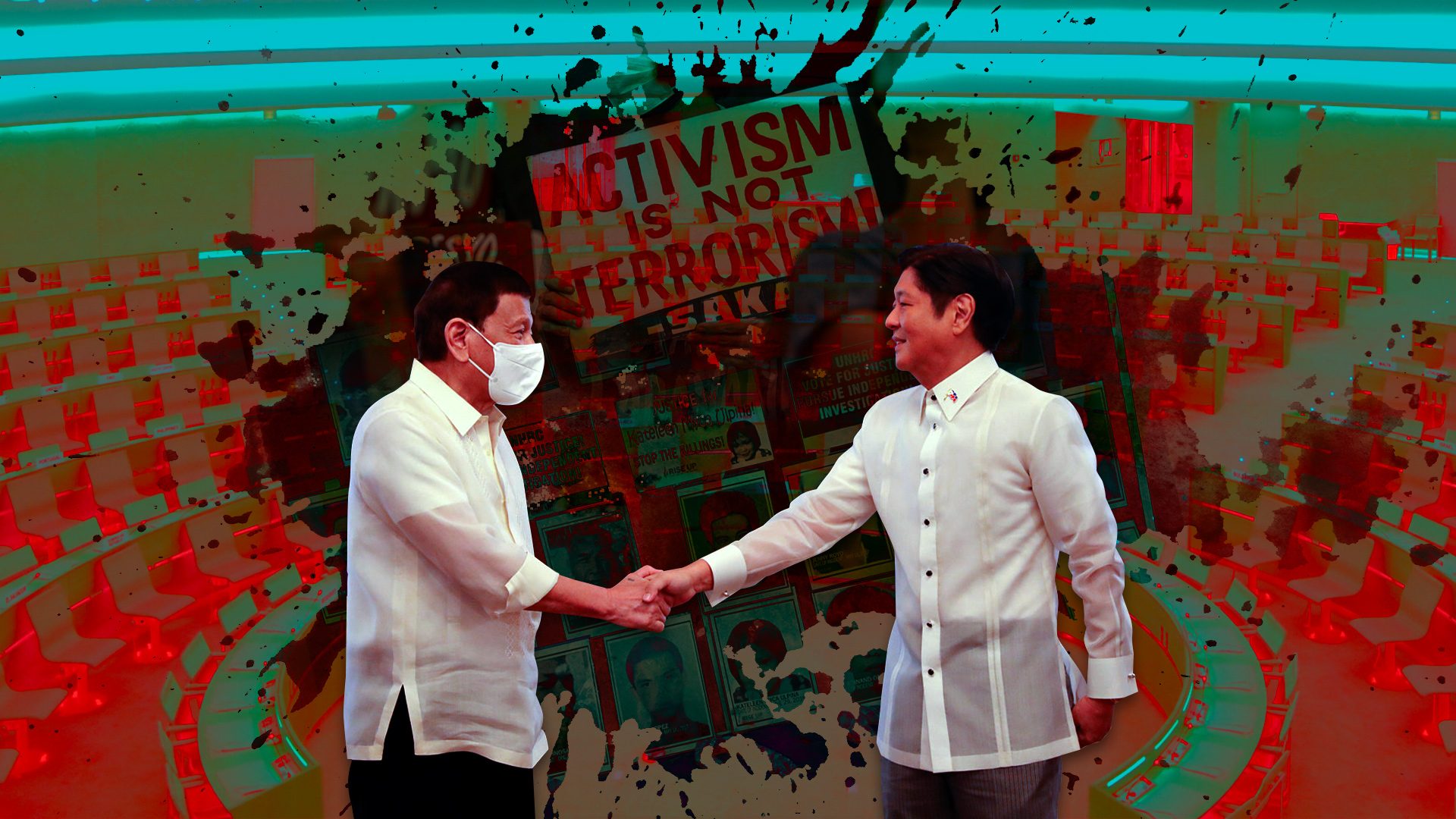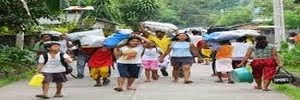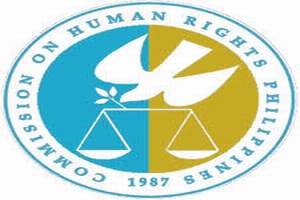From the Website of RAPPLER
links: https://www.rappler.com/nation/things-to-know-united-nations-review-philippines-human-rights-record-rodrigo-duterte/
links: https://www.rappler.com/nation/things-to-know-united-nations-review-philippines-human-rights-record-rodrigo-duterte/
Religious group: Terror financing charge ‘part of worsening state repression’ vs rights defenders
--------------------------
Why the upcoming UN review of human rights under Duterte matters
A change of administration will not be accepted as an excuse to not mind the carnage brought about by [Rodrigo Duterte]'s drug war,' former CHR commissioner Karen Gomez-Dumpit says
MANILA, Philippines – There is no shortage of credible documentation about the dire state of human rights under the administration of former president Rodrigo Duterte.
Numerous reports by various civil society organizations, international bodies, and independent media all paint a picture of a culture of impunity that has plagued the Philippines since 2016. These verified information cover several incidents of abuse, most especially under the violent anti-illegal drug campaign, and are considered valuable in a bid to never forget the atrocities committed and aided by Duterte.
The human rights record of Duterte will be placed under close scrutiny again in November 2022, this time through the Universal Periodic Review of the United Nations. But what does all this mean anyway?
MANILA, Philippines – There is no shortage of credible documentation about the dire state of human rights under the administration of former president Rodrigo Duterte.
Numerous reports by various civil society organizations, international bodies, and independent media all paint a picture of a culture of impunity that has plagued the Philippines since 2016. These verified information cover several incidents of abuse, most especially under the violent anti-illegal drug campaign, and are considered valuable in a bid to never forget the atrocities committed and aided by Duterte.
The human rights record of Duterte will be placed under close scrutiny again in November 2022, this time through the Universal Periodic Review of the United Nations. But what does all this mean anyway?
What is a Universal Periodic Review and why is it important?
The Universal Periodic Review (UPR) is a process wherein the human rights records of all member-states of the United Nations (UN) are assessed. The review, conducted by the UN Human Rights Council (UN HRC), also gives out recommendations that can address and improve the human rights situation and address violations in any country.
This mechanism was established through a UN resolution in 2006 through a UN resolution, but it was only in 2011 when the first reviews were held.
“[The UPR] also aims to surface the human rights situation in a particular country so that attention is drawn to it particularly by member-states because of the duty of that state to make sure that all of these issues are addressed,” Commission on Human Rights (CHR) executive director Jacqueline de Guia explained during a press briefing on August 11.
“It aims to replicate and identify the best practices of human rights dimensions in a particular country with the hope that member-states will also mirror those best practices in their own countries,” she added.
The human rights record of the Philippines is set to be assessed through the UPR in November 2022. It last underwent this process in May 2017, barely a month into the term of then-president Duterte.
Former CHR commissioner Karen Gomez-Dumpit told Rappler on Tuesday, August 16, that the UPR is treated as a venue for stakeholders to “come together and have an honest dialogue.”
“It is a collective national self-examination that not only tries to bring to the table the rights violations and other prevailing issues but also to spark discussions about solutions that can properly address systemic problems,” she said.
links:
OTHER HUMAN RIGHTS PROMOTIONS WEBSITES
Human Rights Advocacy Promotions
Home - Human rights Promotions Website
HUMAN RIGHTS PROMOTIONS
Human Rights Advocacy Promotions
Home - Human rights Promotions Website
HUMAN RIGHTS PROMOTIONS
PROTECTION AND PROMOTION OF HUMAN RIGHTS
-----------------------------------------------------------------------------------
-----------
-------------------------------------------------------
---
----------- -----------------------



























































0 comments:
Post a Comment